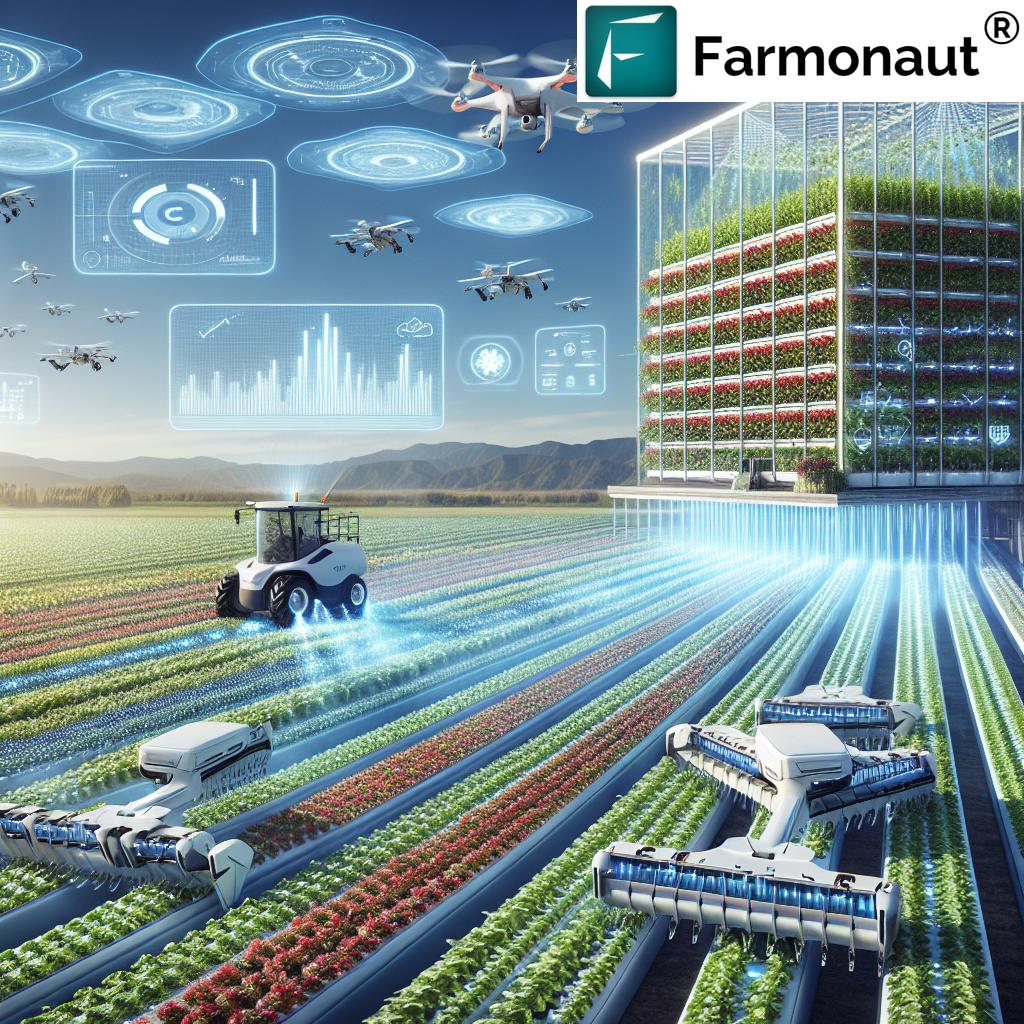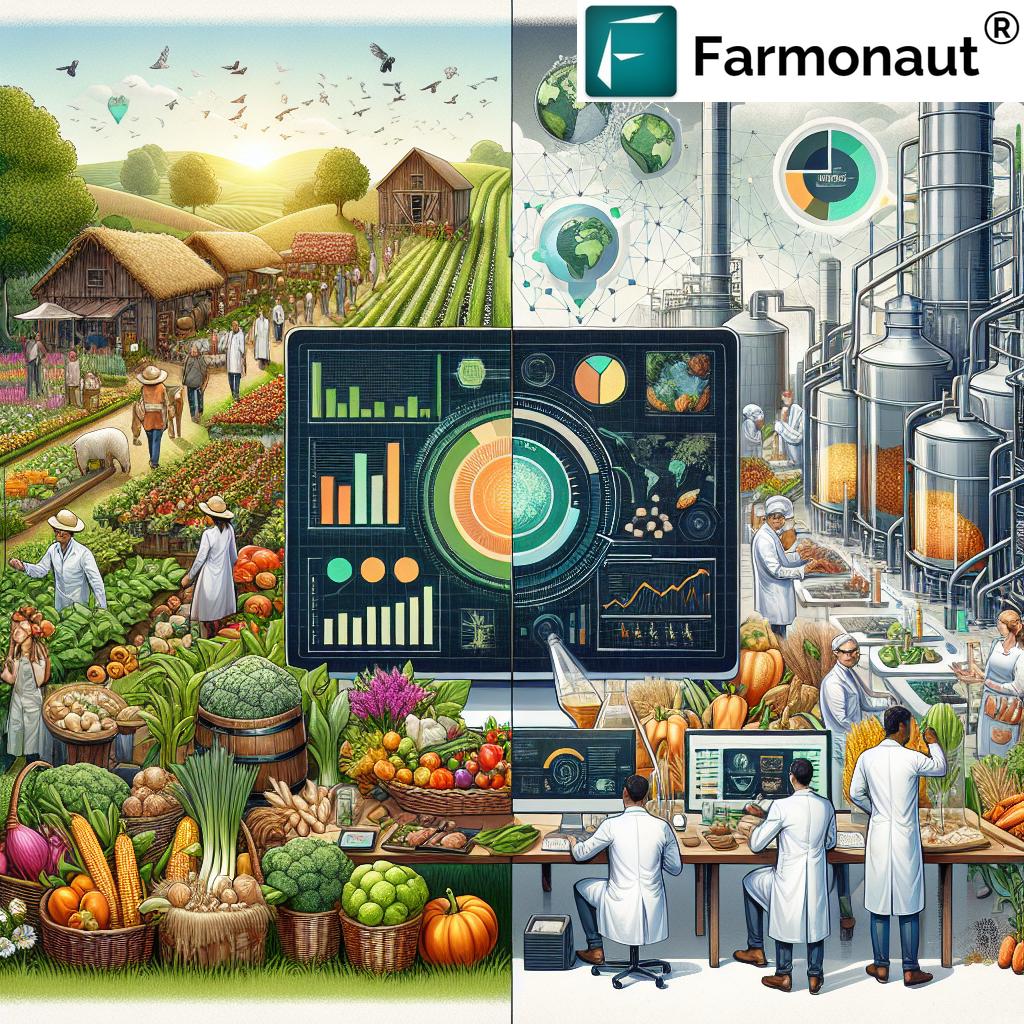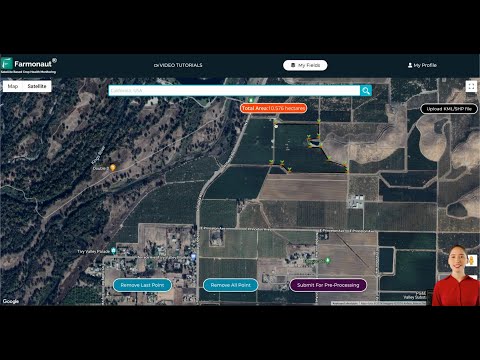Revolutionizing AgTech: Global Investment Trends Shaping Sustainable Agriculture and Food Innovation

“Global agtech investments surged by 85% in 2020, reaching $30 billion across 3,000+ deals worldwide.”
In the rapidly evolving landscape of agriculture and food production, we are witnessing a remarkable transformation driven by cutting-edge technologies and innovative solutions. As we delve into the world of agtech investment trends and sustainable agriculture funding, it’s clear that the industry is experiencing a surge in capital inflow and groundbreaking advancements. From precision farming technologies to agribusiness analytics solutions, the food and agriculture sectors are at the forefront of a technological revolution.
In this comprehensive overview, we’ll explore how startups and established companies are revolutionizing crop yield optimization, developing plant-based food alternatives, and creating agricultural innovation platforms. We’ll also examine the growing importance of smart kitchen technology and organic food delivery services in shaping the future of food production and consumption.
Global AgTech Investment Landscape
The agtech ecosystem is experiencing unprecedented growth, with investments pouring in from various regions across the globe. Let’s take a closer look at the key trends and developments in different parts of the world:
Asia
- Rapid adoption of precision farming technologies
- Significant investments in vertical farming and urban agriculture
- Growing interest in alternative protein sources and plant-based foods
Africa
- Focus on smallholder farmer networks and mobile-based agricultural services
- Investments in drought-resistant crop varieties and water-efficient technologies
- Expansion of digital marketplaces connecting farmers to buyers
Europe
- Strong emphasis on sustainable agriculture practices and organic farming
- Investments in agribusiness analytics and AI-driven farm management solutions
- Development of innovative food packaging and waste reduction technologies
Middle East
- Significant investments in water-efficient technologies and desert agriculture
- Growing interest in vertical farming and controlled environment agriculture
- Development of smart irrigation systems and soil monitoring technologies
As we can see, each region has its unique focus areas and challenges, driving innovation and investment in specific sectors of the agtech industry.
Key Sectors Driving AgTech Innovation
Let’s explore some of the most promising sectors that are attracting significant investment and driving innovation in the agtech landscape:
Precision Farming Technologies
Precision farming technologies are revolutionizing the way farmers manage their crops and resources. By leveraging data-driven insights and advanced sensors, these technologies enable farmers to optimize their inputs, reduce waste, and increase yields. Some key innovations in this sector include:
- Satellite-based crop monitoring systems
- AI-powered predictive analytics for pest and disease management
- Autonomous farm machinery and drones for precision application of inputs
At Farmonaut, we’re proud to be at the forefront of this revolution with our satellite-based farm management solutions. Our platform provides real-time crop health monitoring, AI-based advisory systems, and resource management tools to help farmers make informed decisions and optimize their operations.
Plant-Based Food Alternatives
The demand for plant-based food alternatives is skyrocketing, driven by concerns over sustainability, animal welfare, and health. Investors are pouring capital into startups developing innovative plant-based products that mimic the taste and texture of meat, dairy, and seafood. Some notable developments in this sector include:
- Advanced fermentation techniques for creating realistic meat alternatives
- Novel plant proteins derived from sources like peas, lentils, and algae
- 3D printing technology for creating complex plant-based food structures
Agribusiness Analytics Solutions
Data-driven decision-making is becoming increasingly crucial in agriculture. Agribusiness analytics solutions are helping farmers and agribusinesses make sense of the vast amounts of data generated from various sources, including weather stations, soil sensors, and satellite imagery. Key innovations in this sector include:
- Machine learning algorithms for yield prediction and crop management
- Blockchain-based supply chain tracking and traceability solutions
- Big data analytics for market insights and price forecasting
Farmonaut’s platform integrates advanced analytics capabilities, providing farmers with actionable insights to improve their productivity and profitability. Our API also allows developers and businesses to integrate our satellite and weather data into their own systems, fostering collaboration and innovation in the agtech ecosystem.
Smart Kitchen Technology
The future of food extends beyond the farm and into our kitchens. Smart kitchen technology is transforming the way we prepare, cook, and consume food. Investors are backing startups that are developing innovative appliances and connected devices to make cooking more efficient, personalized, and sustainable. Some exciting developments in this sector include:
- AI-powered meal planning and recipe recommendation systems
- Smart refrigerators that track inventory and suggest recipes based on available ingredients
- Connected cooking appliances that automate cooking processes and ensure optimal results
Organic Food Delivery Services
The demand for organic, locally-sourced food has been growing steadily, and investors are taking notice. Organic food delivery services are attracting significant funding as they bridge the gap between small-scale organic farmers and urban consumers. Key trends in this sector include:
- Farm-to-table subscription box services
- AI-driven logistics optimization for efficient last-mile delivery
- Mobile apps connecting consumers directly with local organic farmers
“Precision farming technologies are projected to reach a market value of $12.9 billion by 2027, growing at 13% CAGR.”
Agricultural Innovation Platforms
Agricultural innovation platforms are playing a crucial role in fostering collaboration and driving progress in the agtech industry. These platforms bring together farmers, researchers, entrepreneurs, and investors to accelerate the development and adoption of new technologies. Some key features of successful agricultural innovation platforms include:
- Open-source data sharing and collaboration tools
- Virtual and physical spaces for co-creation and experimentation
- Incubator and accelerator programs for agtech startups
At Farmonaut, we’re committed to fostering innovation in agriculture. Our platform serves as a hub for farmers, agronomists, and researchers to collaborate and share insights, driving the development of new solutions to address pressing challenges in agriculture.
Crop Yield Optimization
Improving crop yields is a critical focus area for agtech investments, as the global population continues to grow and arable land becomes increasingly scarce. Innovative solutions for crop yield optimization include:
- Gene editing techniques for developing high-yielding, resilient crop varieties
- Microbiome engineering to enhance plant growth and disease resistance
- Precision irrigation systems that optimize water usage based on real-time soil moisture data
Smallholder Farmer Networks
Empowering smallholder farmers is crucial for achieving global food security and sustainable agriculture. Investors are backing initiatives that connect smallholder farmers with resources, markets, and technologies to improve their productivity and livelihoods. Key developments in this area include:
- Mobile-based advisory services providing personalized agronomic recommendations
- Digital marketplaces connecting smallholder farmers directly with buyers
- Microfinance and insurance products tailored for smallholder farmers
Farmonaut’s platform is designed to be accessible and affordable for farmers of all scales, including smallholders. Our mobile apps and web-based solutions provide valuable insights and tools to help smallholder farmers make informed decisions and improve their yields.
Global Investment Trends by Region and Sector
| Region | Precision Farming | Plant-Based Alternatives | Agribusiness Analytics | Smart Kitchen Technology | Organic Food Delivery | Water-Efficient Technologies | Total Investment |
|---|---|---|---|---|---|---|---|
| Asia | $2.5B | $1.8B | $1.2B | $0.8B | $1.5B | $1.0B | $8.8B |
| Africa | $0.5B | $0.2B | $0.3B | $0.1B | $0.4B | $0.7B | $2.2B |
| Europe | $2.0B | $1.5B | $1.8B | $1.0B | $1.2B | $0.8B | $8.3B |
| Middle East | $0.8B | $0.3B | $0.5B | $0.2B | $0.3B | $1.2B | $3.3B |
| Year-over-Year Growth | 15% | 25% | 20% | 18% | 22% | 17% | 19% |
This table provides a comprehensive overview of global AgTech investment trends, highlighting the significant capital inflows across various regions and sectors. It’s clear that precision farming and plant-based alternatives are attracting substantial investments across all regions, while water-efficient technologies are particularly prominent in Africa and the Middle East.
The Role of Venture Capital and Accelerators
Venture capital firms and accelerators play a crucial role in driving innovation and growth in the agtech sector. These entities not only provide funding but also offer mentorship, networking opportunities, and strategic guidance to help startups scale their solutions. Some notable trends in agtech venture capital and accelerator programs include:
- Specialized agtech-focused venture capital funds
- Corporate venture arms of large agribusiness companies investing in startups
- Accelerator programs tailored for different stages of agtech startups
Sustainable Practices and Environmental Impact
Sustainability is a key focus area for agtech investments, as the industry seeks to address environmental challenges and meet growing consumer demand for sustainably produced food. Some key areas of innovation in sustainable agriculture include:
- Carbon sequestration techniques in agriculture
- Biodegradable packaging materials derived from agricultural waste
- Precision livestock farming for reduced environmental impact
At Farmonaut, we’re committed to promoting sustainable agriculture practices. Our platform includes features like carbon footprint tracking, which helps agribusinesses monitor and reduce their environmental impact.
The Future of AgTech: Emerging Trends and Opportunities
As we look to the future of agtech, several exciting trends and opportunities are emerging:
- Integration of 5G technology for real-time data transfer and remote operation of farm machinery
- Advanced robotics and automation in agriculture, including harvesting robots and autonomous tractors
- Vertical farming solutions for urban environments
- Cellular agriculture and lab-grown meat alternatives
- Blockchain-based supply chain management for improved traceability and transparency
These emerging trends present numerous opportunities for entrepreneurs, investors, and established companies to drive innovation and create value in the agtech sector.
Farmonaut: Empowering Farmers with Advanced Technology
At Farmonaut, we’re proud to be at the forefront of the agtech revolution. Our platform combines satellite technology, AI, and blockchain to provide farmers with powerful tools for precision agriculture, crop health monitoring, and resource management. By making these advanced technologies accessible and affordable, we’re helping farmers of all scales improve their productivity, sustainability, and profitability.
Our commitment to innovation extends beyond our core platform. We offer a robust API for developers, enabling integration of our satellite and weather data into other agtech solutions. This collaborative approach fosters innovation and helps drive the entire agtech ecosystem forward.

Conclusion
The agtech industry is experiencing a period of unprecedented growth and innovation, driven by significant investment and technological advancements. From precision farming technologies to plant-based food alternatives, smart kitchen technology to organic food delivery services, the future of agriculture and food production is being shaped by cutting-edge solutions that promise to increase efficiency, sustainability, and food security.
As we’ve explored in this overview, the global nature of agtech investments is driving innovation across various regions, each with its unique challenges and opportunities. The convergence of technologies like AI, blockchain, and satellite imaging is creating powerful tools that are transforming the way we grow, distribute, and consume food.
At Farmonaut, we’re excited to be part of this revolution, providing farmers with the tools they need to thrive in this new era of agriculture. As the industry continues to evolve, we remain committed to driving innovation, promoting sustainability, and empowering farmers around the world.
FAQ Section
1. What are the main drivers of agtech investment?
The main drivers include the need for increased food production to feed a growing global population, the push for sustainability in agriculture, and the potential for technology to improve efficiency and profitability in farming.
2. How is precision farming technology changing agriculture?
Precision farming technologies, like those offered by Farmonaut, are enabling farmers to make data-driven decisions, optimize resource use, and increase crop yields through real-time monitoring and AI-powered insights.
3. What role does blockchain play in agtech?
Blockchain technology is being used to improve supply chain transparency, enhance food traceability, and create more efficient systems for transactions between farmers, suppliers, and consumers.
4. How are plant-based food alternatives impacting the agtech industry?
The growing demand for plant-based alternatives is driving investment in new food technologies, alternative protein sources, and sustainable production methods.
5. What opportunities exist for smallholder farmers in the agtech revolution?
Agtech solutions, including mobile apps and affordable precision farming tools, are making advanced technologies more accessible to smallholder farmers, helping them improve yields and connect with markets.






